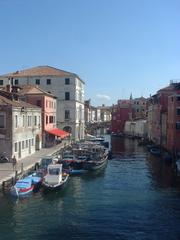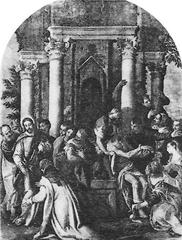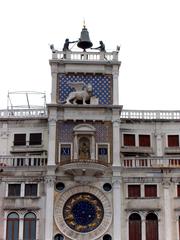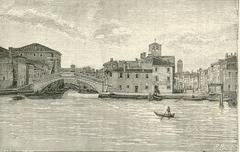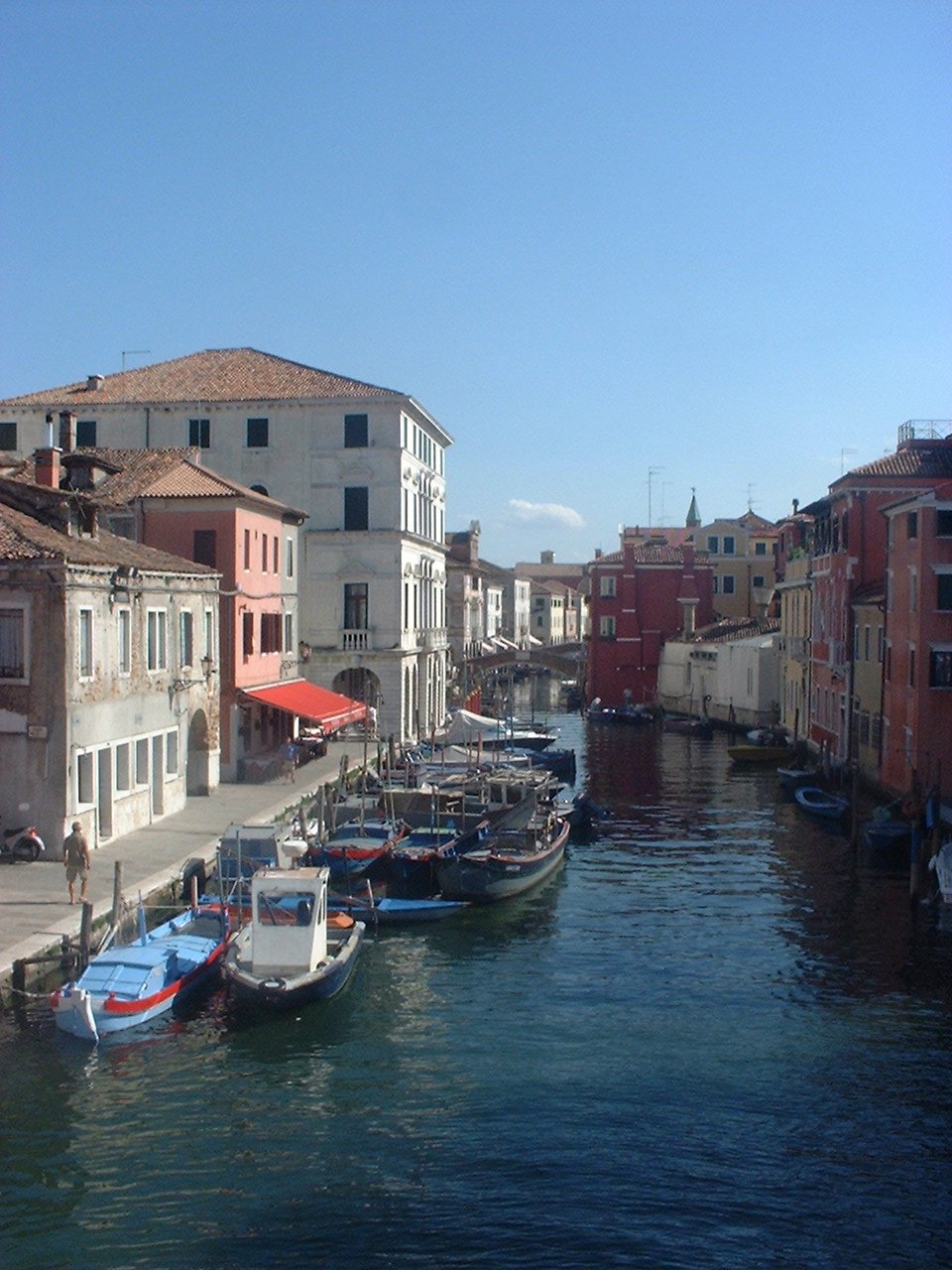
Palazzo Grassi Visiting Hours, Tickets, and Guide to Chioggia Historical Sites
Date: 14/06/2025
Introduction
Palazzo Grassi in Chioggia stands as a testament to the city’s rich maritime heritage, architectural splendor, and its ongoing commitment to cultural and scientific advancement. Overlooking the scenic Canale Vena and located near the vibrant Corso del Popolo, this 18th-century palazzo was built by the influential Grassi family, who rose from merchant origins to Venetian nobility, reflecting Chioggia’s prominent role in the Venetian Republic (chioggia.biologia.unipd.it; Bonjour Venise).
Today, Palazzo Grassi is not only admired for its architectural elegance and noble history but also as the home of the Museo “Giuseppe Olivi,” dedicated to marine biology and the unique ecosystem of the Venetian lagoon. This guide provides essential and up-to-date information on visiting hours, ticketing, accessibility, and amenities, as well as insights into the palazzo’s historical evolution, current cultural role, and engagement with the Chioggia community. Whether you are a history enthusiast, architecture aficionado, science lover, or cultural traveler, Palazzo Grassi promises a memorable and enriching experience at the heart of “Little Venice” (Hotel Mediterraneo Chioggia).
For enhanced exploration, visitors are encouraged to download the Audiala app, which offers guided tours, interactive maps, and real-time event updates.
Table of Contents
- Historical Background
- Architecture and Interior Features
- The Grassi Family Legacy
- Transformations and Modern Role
- Visiting Hours and Ticket Information
- Guided Tours and Educational Programs
- Accessibility and Visitor Amenities
- Museo “Giuseppe Olivi” and Scientific Heritage
- Community and Cultural Events
- Seasonal Highlights and Special Experiences
- Photography and Visitor Conduct
- Nearby Attractions in Chioggia
- Practical Tips and Frequently Asked Questions
- Conclusion
- References
Historical Background
Palazzo Grassi was constructed in the early 18th century, between 1703 and 1714, at the behest of the prosperous Grassi family, whose ascent from merchants to Venetian patricians marked a rare trajectory in the Republic’s social hierarchy (olivi.musei.unipd.it). The palazzo’s design is attributed to both Baldassare Longhena and Andrea Tirali, with Longhena likely responsible for the initial plans and Tirali overseeing later developments, including the garden (chioggia.biologia.unipd.it).
Throughout its history, the building underwent several transformations. In the 19th century, it was converted into a civil hospital and later served as municipal offices. After extensive restoration in the late 20th century, it was revitalized as an educational and cultural hub. Since 2001, it has housed the University of Padua’s Hydrobiological Station and the Museo di Zoologia Adriatica “Giuseppe Olivi” (comune.chioggia.ve.it).
Architecture and Interior Features
Palazzo Grassi is a striking example of the late Renaissance and early Baroque styles, featuring rusticated stonework on the ground floor and arched arcades that open onto the canal. A grand internal courtyard, once adorned with statues representing the four seasons, and a garden attributed to Tirali, further elevate its architectural prestige (olivi.musei.unipd.it).
Inside, visitors will find frescoed ceilings, marble staircases, and ornate balconies. The layout includes:
- Ground Floor: Reception, ticket office, and spaces for temporary exhibitions.
- First Floor (Piano Nobile): Permanent exhibitions and the main museum collection.
- Second Floor: Rotating gallery space and cultural event areas.
The Grassi Family Legacy
The construction of Palazzo Grassi was both a statement of the family’s newfound status and an emblem of Chioggia’s economic and social vitality in the Venetian era (olivi.musei.unipd.it). The palazzo’s grandeur and prominent location reflected their ambition and the city’s maritime importance.
Transformations and Modern Role
After serving as a hospital and municipal offices in the 19th and 20th centuries, Palazzo Grassi underwent careful restoration to preserve its historical integrity. The building now functions as a dynamic center for scientific research, cultural engagement, and public education, showcasing Chioggia’s ongoing evolution (chioggia.biologia.unipd.it).
Visiting Hours and Ticket Information
Visiting Hours
- Tuesday to Sunday: 9:00 AM – 6:00 PM
- Closed: Mondays and public holidays
Check official sources for updates regarding seasonal changes or special closures.
Ticket Prices
- Adults: €8
- Seniors, Students, Groups: €5
- Children under 12: Free
Tickets can be purchased online or at the ticket office. Advance booking is recommended during peak seasons and major events.
Guided Tours and Educational Programs
Guided tours, offered in Italian and English, provide deep dives into the palazzo’s architecture, history, and scientific collections. Group and school tours must be booked in advance. The museum also hosts lectures, workshops, and interactive programs, especially during the summer and seasonal festivals (Chioggia Cultura).
Accessibility and Visitor Amenities
Palazzo Grassi is fully accessible, with ramps, elevators, and accessible restrooms. The staff is trained to assist visitors with special needs, and tactile guides are available for visually impaired guests (Veneto per Tutti). Amenities include:
- Restrooms on all main floors
- Cloakroom for coats and bags
- Gift shop with books and local crafts
- Free Wi-Fi throughout the building
Museo “Giuseppe Olivi” and Scientific Heritage
The Museo “Giuseppe Olivi,” housed within the palazzo, is dedicated to the pioneering Chioggia-born naturalist and highlights the Adriatic Sea’s biodiversity. Its exhibits feature marine specimens, historical documents, interactive displays, and hands-on educational activities focusing on marine science, lagoon ecology, and sustainable fishing practices (Hotel Mediterraneo Chioggia).
The museum also leads citizen science initiatives and environmental monitoring programs, involving visitors in practical conservation and research efforts (Bonjour Venise).
Community and Cultural Events
Palazzo Grassi is a hub for Chioggia’s cultural life, hosting:
- Art exhibitions and theater performances
- The annual “Laguna Sud” festival in August
- Seasonal events like “Chioggia in Fiore” and “Notte Bianca”
- Educational workshops and family-friendly activities
Some exhibitions and events are free, while others require tickets typically ranging from €5 to €15 (Chioggia Eventi; Chioggia.info).
Seasonal Highlights and Special Experiences
Highlights include exclusive guided tours during festivals, summer night openings, and themed workshops such as Venetian mask-making during Carnival. These occasions often grant access to areas not open during regular hours.
Photography and Visitor Conduct
Non-flash photography is permitted in most areas except where restricted for conservation or during performances. Tripods are not allowed. Visitors are asked to respect the historic environment by avoiding noise and not touching exhibits.
Nearby Attractions in Chioggia
Palazzo Grassi’s central location allows easy exploration of other landmarks:
- Cathedral of Santa Maria Assunta: Baroque interiors and notable artworks
- Museo Civico della Laguna Sud: Dedicated to lagoon ecology and local history (Museo Civico della Laguna Sud)
- Pescheria (Fish Market): A window into Chioggia’s fishing heritage
- Vigo Bridge: Offers scenic canal views
Combine these sites for a full day of cultural immersion (Chioggia Turismo; Visit Chioggia).
Practical Tips and Frequently Asked Questions
- Advance Booking: Recommended for tours and during festivals.
- Dress Code: Casual with comfortable footwear.
- Languages: Italian and English; some guides available in other languages.
- Best Visiting Seasons: Spring and early autumn for mild weather and fewer crowds.
- Local Cuisine: Enjoy seafood specialties at nearby trattorias, some offering discounts with your museum ticket.
FAQs
Q: What are the opening hours?
A: Tuesday to Sunday, 9:00 AM – 6:00 PM; closed Mondays.
Q: How much is admission?
A: Adults €8; seniors/students/groups €5; children under 12 free.
Q: Are guided tours available?
A: Yes, in Italian and English; book in advance for groups.
Q: Is the building accessible?
A: Fully accessible with ramps and elevators.
Q: Can I take photos?
A: Yes, except in restricted areas and without flash or tripods.
Q: Where can I buy tickets?
A: Online or at the ticket office; advance booking is advised.
Conclusion
Palazzo Grassi is a living emblem of Chioggia’s layered past and dynamic present, offering visitors a rare fusion of noble architecture, scientific discovery, and vibrant community culture. Whether you’re exploring its marine biology exhibits, attending a festival, or simply admiring the palazzo’s elegant façade, your visit will connect you with Chioggia’s enduring maritime spirit.
For up-to-date information on visiting hours, ticketing, and events, consult the official websites listed below. Enhance your experience with the Audiala app, and stay connected via social media for the latest news and special offers. Embark on your Chioggia adventure today!
References and Useful Links
- Palazzo Grassi in Chioggia: Visiting Hours, Tickets, and Historical Insights, University of Padua
- Visiting Palazzo Grassi in Chioggia: Hours, Tickets, and Historical Insights, Bonjour Venise
- Palazzo Grassi Chioggia: Visiting Hours, Tickets & Must-See Historical Site, Hotel Mediterraneo Chioggia
- Palazzo Grassi Chioggia Visiting Hours, Tickets & Guide to Chioggia Historical Sites, Chioggia.info
- Comune di Chioggia - Palazzo Grassi
- Chioggia Turismo Official Site
- Museo Civico della Laguna Sud
- Chioggia Musei
